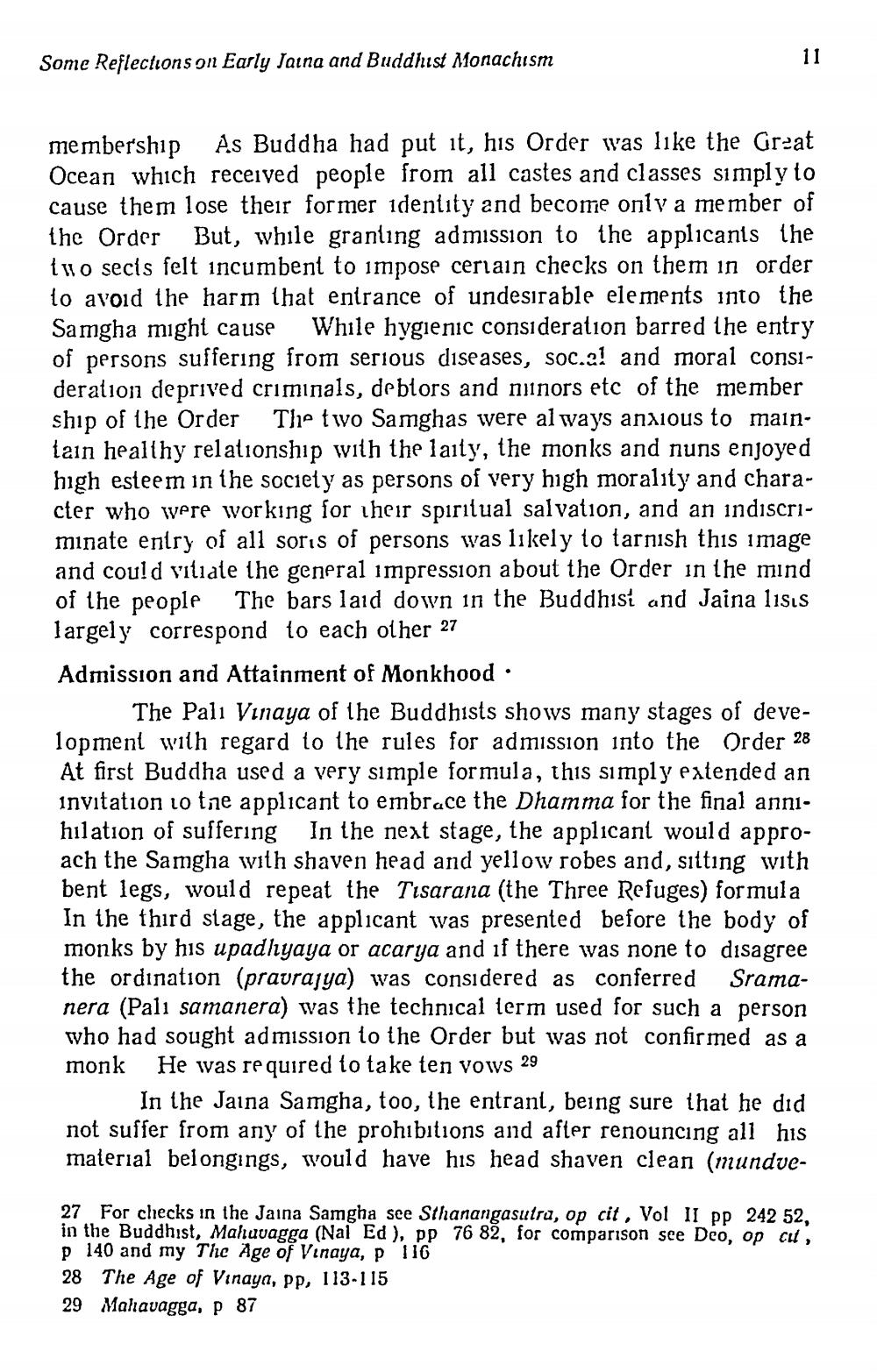________________
Some Reflections on Early Jana and Buddhist Monachism
membership As Buddha had put it, his Order was like the Great Ocean which received people from all castes and classes simply to cause them lose their for mer identity and become only a member of the Order But, while granting admission to the applicants the tuo secis felt incumbent to impose ceriain checks on them in order to avoid the harm that entrance of undesirable elements into the Samgha might cause While hygienic consideration barred the entry of persons suffering from serious diseases, soc.! and moral consideration deprived criminals, debtors and nunors etc of the member ship of the Order The two Samghas were al ways anxious to mainlain healthy relationship with the laty, the monks and nuns enjoyed high esteem in the society as persons of very high morality and character who were working for their spiritual salvation, and an indiscriminate entry of all sorts of persons was likely to tarnish this image and could vitiate the general impression about the Order in the mind of the people. The bars laid down in the Buddhist and Jaina lisis largely correspond to each other 27 Admission and Attainment of Monkhood ·
The Pali Vinaya of the Buddhists shows many stages of development with regard to the rules for admission into the Order 28 At first Buddha used a very simple formula, this simply extended an invitation to the applicant to embrace the Dhamma for the final annihilation of suffering in the next stage, the applicant would approach the Samgha with shaven head and yellow robes and, sitting with bent legs, would repeat the Tisarana (the Three Refuges) formula In the third stage, the applicant was presented before the body of monks by his upadhyaya or acarya and if there was none to disagree the ordination (praurajya) was considered as conferred Sramanera (Pali samanera) was the technical term used for such a person who had sought admission to the Order but was not confirmed as a monk He was required to take ten vows 29
In the Jaina Samgha, too, the entrant, being sure that he did not suffer from any of the prohibitions and after renouncing all his material belongings, would have his head shaven clean (mundve
27 For checks in the Jaina Samgha see Sthanangasutra, op cit, Vol II pp 242 52, in the Buddhist, Mahavagga (Nal Ed), pp 76 82, for comparison see Deo, op cut, p 140 and my The Age of Vinaya, P 116 28 The Age of Vinaya, pp, 113-115 29 Mahavagga, p 87




